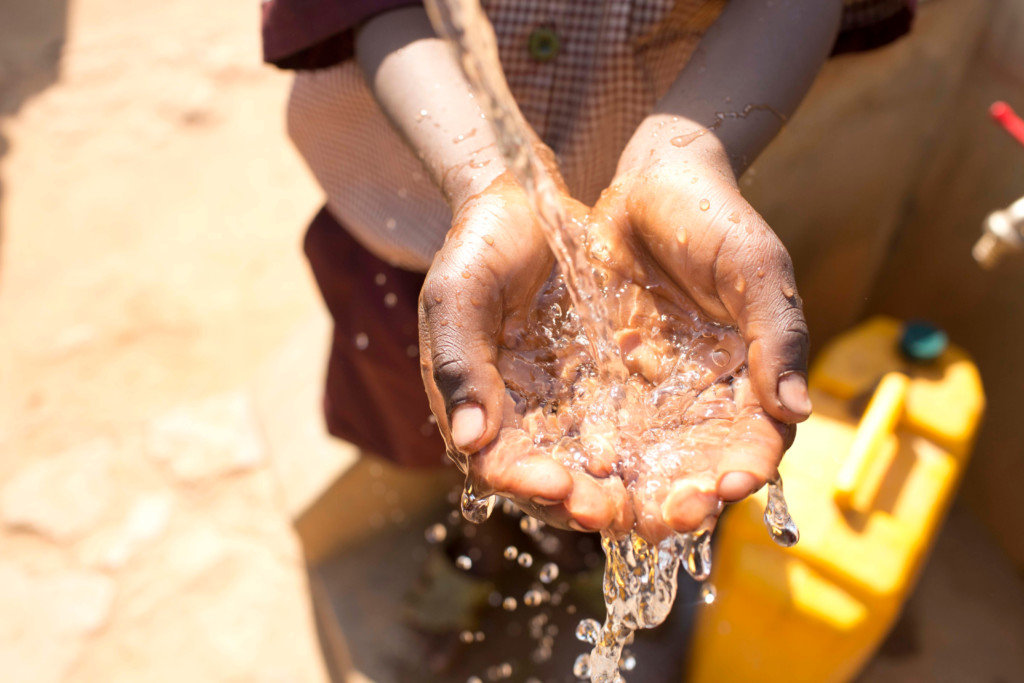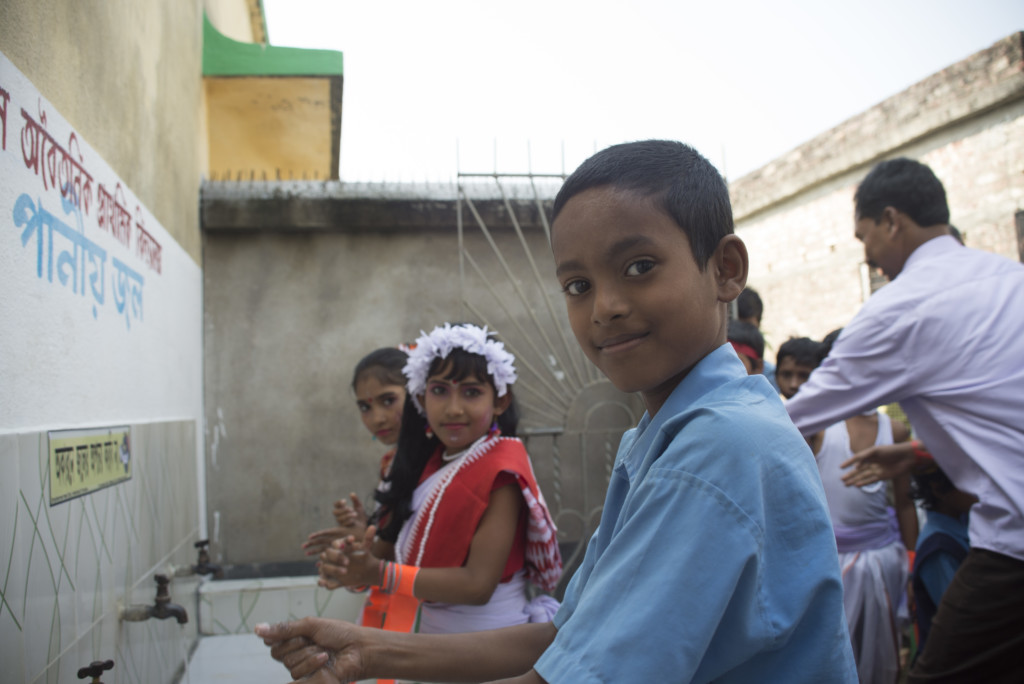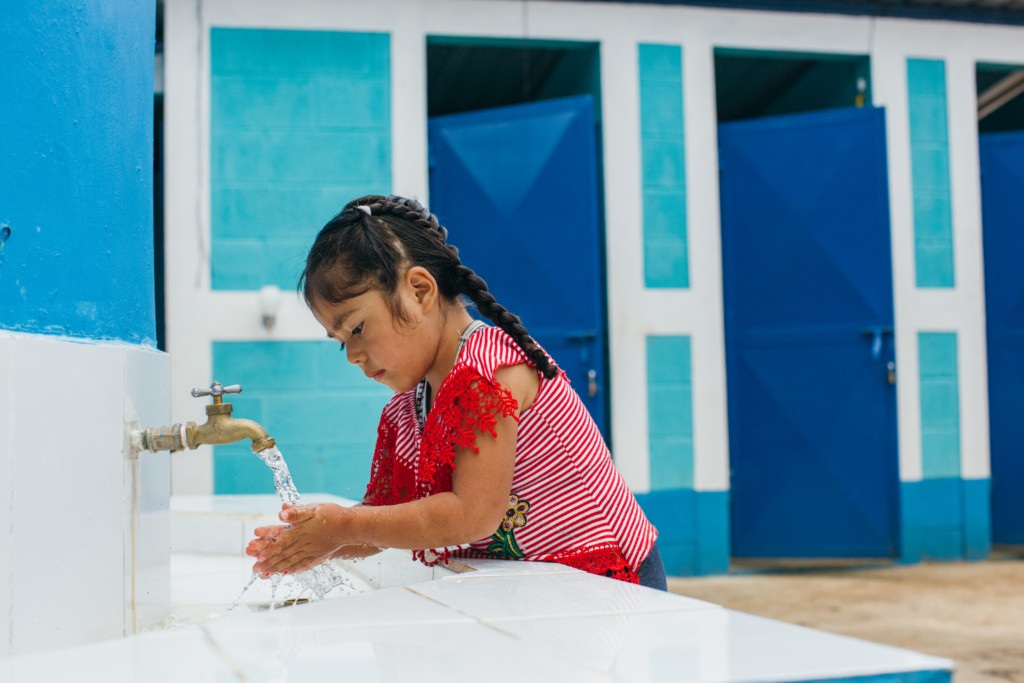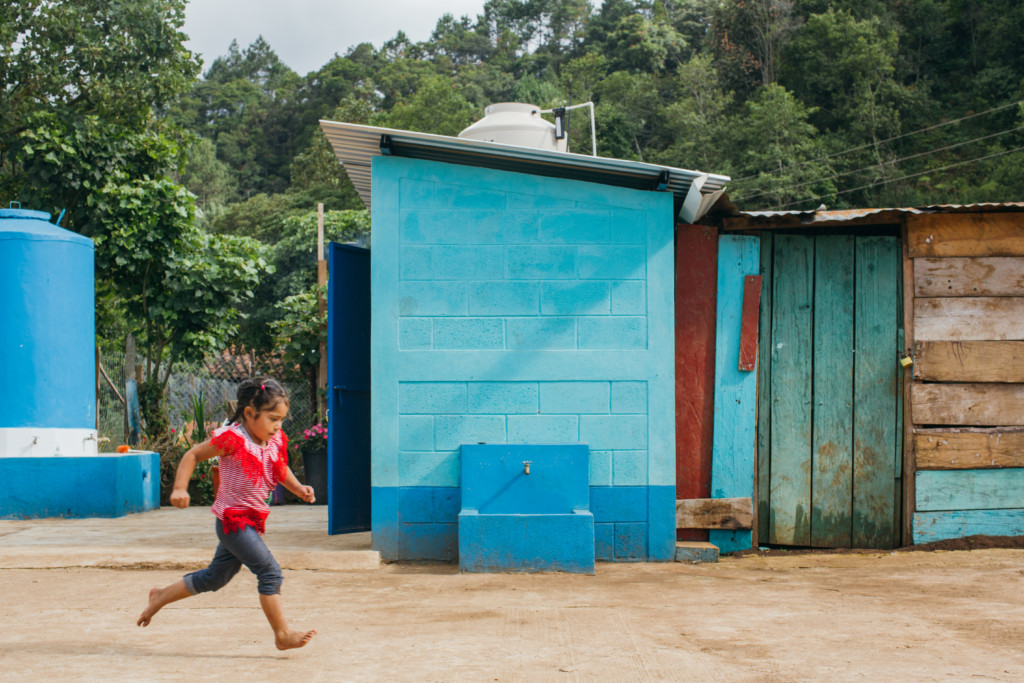Explore these WASH Room blog posts written by Water For People team members and partners.
- All
- English
- Español

Changing lives through changed WASH behaviors
By Monique Uwimpuhwe
This blog presents the work of Water For People alongside the Rwanda National Program of Community Based Environmental Health Prom and their joint work to change the WASH behaviors of a community in the Rulindo District.

Soluciones para nuestros alumnos: Una campaña de movilización para mejorar el entorno escolar
By Pritanu Mishra & Saurya Sekhar Pal
Esta historia refleja la unión de los departamentos gubernamentales, los profesores, padres, alumnos, y el personal de proyecto para ayudar a las escuelas a mejorar la operación y el mantenimiento (OyM) de las instalaciones de Agua, Saneamiento e Higiene en escuelas (SWASH).

Solutions for our students: A mobilization drive for a better school environment
By Pritanu Mishra & Saurya Sekhar Pal
This story reflects government departments, teachers, parents, students, and project staff coming together to help schools to improve operation and maintenance (O&M) of School Water, Sanitation, and Hygiene (SWASH) facilities.

La Pandemia, Atención de Personas Vulnerables y Movilización de Recursos
Por Aura Cúc Guarcas
En Guatemala, el inicio de la pandemia evidenció la falta de sistemas de saneamiento adecuado y la dificultad en el acceso al agua potable en comunidades e instituciones publicas en zonas rurales. En medio de esta crisis, Water For People tuvo que repensar en nuevas estrategias para llegar a las poblaciones vulnerables. Conoce más sobre su experiencia y cómo enfrentaron este panorama.

The Pandemic, Serving Vulnerable People, and Resource Mobilization
By Aura Cúc Guarcas
In Guatemala, the start of the pandemic highlighted the lack of adequate sanitation systems and the difficulty in accessing safe drinking water in communities and public institutions in rural areas. Amidst this crisis, Water For People had to rethink new strategies to reach vulnerable populations. Learn more about their experience and how they faced this scenario.

Water Resources Management via Rooftop Rainwater Harvesting
By Prakash Nayak
Rooftop rainwater harvesting is a technique through which rainwater is captured from household rooftop catchments and stored in a designated reservoir. Harvested rainwater can be stored in these reservoirs for future household consumption, and any overflow can be stored in subsurface groundwater reservoirs for additional uses, such as irrigation.

La gestión de recursos hídricos mediante la recogida de agua de lluvia en los techos
Por Prakash Nayak
La recogida de agua de lluvia en los techos es una técnica mediante la cual se recoge el agua de lluvia de las captaciones de los techos de los hogares y se almacena en un depósito designado. El agua de lluvia recogida puede almacenarse en estos depósitos para el futuro consumo de los hogares, y cualquier desbordamiento puede almacenarse en depósitos de aguas subsuperficiales para usos adicionales, como el riego.

Financiar agua y saneamiento: Un potencial que las Instituciones Microfinancieras deben explorar
Por Cesar López
Las instituciones microfinancieras (IMFs) de América Latina, y específicamente en Guatemala, han mostrado mayor apertura a iniciativas de financiamiento no tradicionales, incluyendo la vivienda popular, paneles solares, estufas ahorradoras de leña y agricultura sostenible. También estamos comenzando a ver las primeras luces de financiar a pequeña escala soluciones para agua y saneamiento descentralizado para familias sin acceso a soluciones dignas e higiénicas para el hogar.

Financing Water and Sanitation: A Potential that Microfinance Institutions Should Explore
By Cesar López
Microfinance institutions (MFIs) in Latin America, and specifically in Guatemala, have shown greater openness to non-traditional financing initiatives, including low-income housing, solar panels, wood-saving stoves, and sustainable agriculture. We are also beginning to see the emergence of financing for decentralized water and sanitation solutions on a small scale for families without access to dignified and hygienic home solutions.
